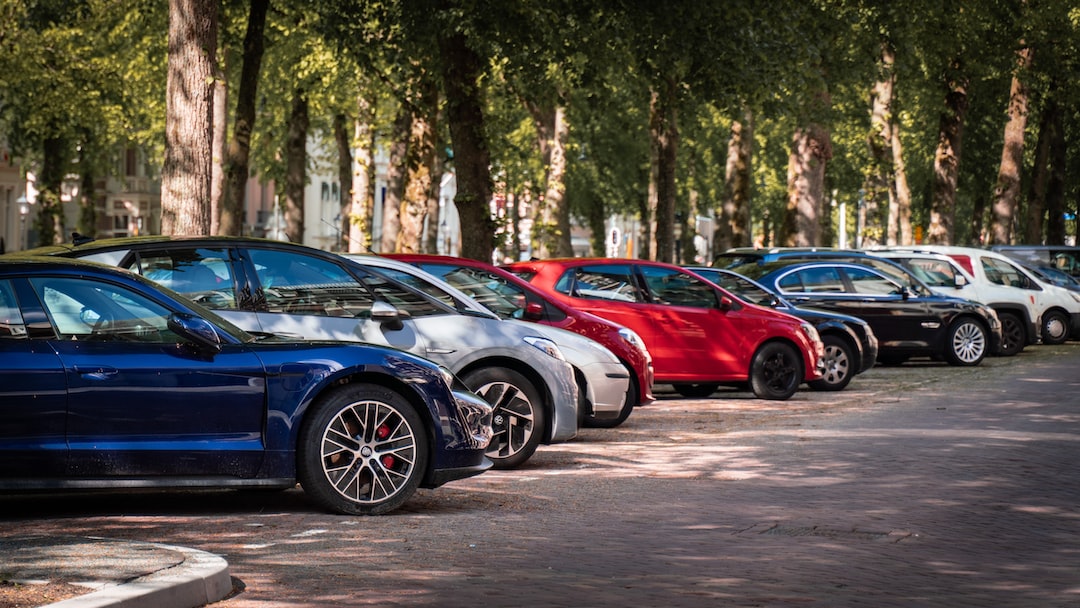Ticketless Parking vs. Traditional Parking: Which is Better for Your Business?

Are you trying to decide between a traditional parking system and a ticketless parking system for your business?
Parking is a critical aspect of any business that receives customers or has employees who need to park on-site. Choosing the right parking system can make a significant impact on customer satisfaction and employee productivity. However, with so many parking systems available, it can be challenging to decide which one is right for your business.
In this blog post, we will provide you with information to help you decide between a traditional parking system and a ticketless parking system. By the end of this post, you will have a better understanding of which parking system is best suited for your business, and you will be equipped to make an informed decision that will enhance customer satisfaction, employee productivity, and, ultimately, generate more revenue for your business.
How Does a Traditional Parking System Work?
Traditional parking systems involve customers taking a ticket upon entry and paying for their parking upon exit. This system requires the customer to keep track of their ticket, which can be lost, and results in time-consuming queues.
Advantages
Here are some advantages of traditional parking systems:
- Familiarity: Traditional parking systems are familiar to customers, and they can quickly understand how to use them. This makes it easier for customers to navigate the parking process and can result in fewer questions or complaints.
- No Need for Technology: Traditional parking systems do not require any advanced technology, such as license plate recognition or mobile payment apps. This can be an advantage for businesses that do not have the resources or expertise to manage and maintain advanced parking technology.
- Flexible Payment Options: Traditional parking systems allow customers to pay with cash or card, which can be convenient for those who prefer to pay with physical currency. This flexibility can also make it easier for businesses to serve customers who do not have access to digital payment methods.
- Availability: Traditional parking systems are widely available and can be purchased or leased from a variety of vendors. This makes it easier for businesses to find a parking system that meets their needs and budget.
Disadvantages
Here are some disadvantages of traditional parking systems:
- Long queues: Traditional parking systems often require customers to take a ticket upon entry and pay for their parking upon exit. This can result in long queues, especially during peak hours or busy periods, which can be frustrating for customers and deter them from parking at your business.
- Risk of fraud: Traditional parking systems are susceptible to fraud, as customers can lose their tickets, and it can be challenging to verify the validity of the tickets presented upon exit. This can result in lost revenue for your business.
- Inconvenient for customers: Customers need to keep track of their parking ticket, which can be lost, and result in them paying for additional parking time. Additionally, traditional parking systems often require customers to handle cash, which can be a concern during the ongoing COVID-19 pandemic.
- Maintenance and management: Traditional parking systems require regular maintenance, including ensuring that ticket machines are functioning correctly and restocking tickets. This can result in additional costs and management time.
- Limited parking information: Traditional parking systems do not provide real-time information on parking spaces, which can result in inefficient use of parking spaces and frustrated customers who cannot find a parking spot.
Overall, these disadvantages can negatively impact customer experience, reduce revenue for your business, and result in inefficient use of parking spaces.
How Do Ticketless Parking Systems Work?
Ticketless parking systems use license plate recognition to track when a vehicle enters and exits the parking lot. The customer does not need to take a ticket, and payment is made through a mobile app or contactless payment method.
Advantages
Here are some advantages of ticketless parking systems:
- Convenience: Ticketless parking systems provide a more convenient experience for customers as they do not need to keep track of a ticket or queue to pay for their parking. They can make payments using their mobile phones or contactless payment methods, which saves time and effort.
- Improved customer experience: Ticketless parking systems can help businesses improve the customer experience. By eliminating the need for customers to queue to pay for their parking or keep track of a ticket, businesses can reduce wait times and improve overall satisfaction levels.
- Increased efficiency: Ticketless parking systems can increase the efficiency of parking operations. They can reduce the time it takes for customers to enter and exit the parking lot, which can help reduce congestion and improve traffic flow.
- Reduced costs: Ticketless parking systems can be more cost-effective than traditional parking systems. They can eliminate the need for ticket machines and reduce the need for staff to manage the parking lot, which can result in cost savings for the business.
- Real-time tracking: Ticketless parking systems can provide businesses with real-time tracking of parking spaces. They can help businesses optimize parking operations by monitoring parking usage and identifying patterns that can inform future decisions.
Overall, ticketless parking systems can provide significant benefits for businesses and customers alike. They offer a more convenient, efficient, and cost-effective parking experience that can improve customer satisfaction and help businesses generate more revenue.
Disadvantages
Here are some disadvantages of ticketless parking systems:
- Technology dependency: Ticketless parking systems rely on advanced technology, such as license plate recognition, mobile apps, and contactless payment methods. If any of these technologies fail, it can lead to disruptions and delays in the parking process.
- Privacy concerns: Ticketless parking systems rely on capturing and storing license plate data, which can raise privacy concerns for some customers. They may not feel comfortable with their personal information being recorded and stored by a third party.
- Internet connectivity: Ticketless parking systems rely on internet connectivity to process payments and capture license plate data. If there is poor internet connectivity in the parking lot, it can lead to delays in the parking process, resulting in customer dissatisfaction.
Overall, while ticketless parking systems offer several advantages, they do have some disadvantages that businesses should consider before implementing them. Understanding the potential drawbacks of ticketless parking systems can help businesses make informed decision and choose a parking system that best suits their needs.
Comparison of Traditional and Ticketless Parking
Cost
Ticketless systems are less expensive to implement than ticketed parking systems. Also, the cost of implementing a ticketless parking system can be offset by increased revenue generated by more efficient parking management and increased customer satisfaction.
Customer Experience
Ticketless parking systems provide a more convenient experience for customers as they do not need to keep track of a ticket or queue to pay for their parking. They also eliminate the need for customers to handle cash.
Maintenance and Management
Traditional parking systems require regular maintenance, including ensuring that ticket machines are functioning correctly and restocking tickets. Ticketless parking systems require less maintenance and can be managed remotely.
Efficiency and Productivity
Ticketless parking systems are more efficient than traditional parking systems, as they eliminate the need for customers to queue to pay for their parking. This can result in faster entry and exit times, which can improve customer satisfaction and increase employee productivity.
Which Parking System is Better for Your Business?
When choosing a parking system, it is essential to consider factors such as the type of business, the number of customers or employees who will use the parking, and the budget.
If you have a large business with a high volume of parking, a ticketless parking system may be more efficient and provide a better customer experience. On the other hand, if you have a small business with a low volume of parking, a traditional parking system may be more cost-effective.
Conclusion
When deciding between a traditional parking system and a ticketless parking system, it is crucial to evaluate the needs of your business and the preferences of your customers. Both systems have their advantages and disadvantages, and the right choice will depend on the specific requirements of your business.
By choosing the right parking system, you can improve customer satisfaction, increase employee productivity, and generate more revenue for your business. If you are considering a ticketless parking system, it is important to choose a reliable provider who can help you implement the system and provide ongoing support.
At Sensor Dynamics, we provide ticketless parking systems that are secure, reliable, and easy to use. Our solutions are designed to help businesses increase their efficiency and improve customer experience. Contact us today to learn more about our parking solutions.

